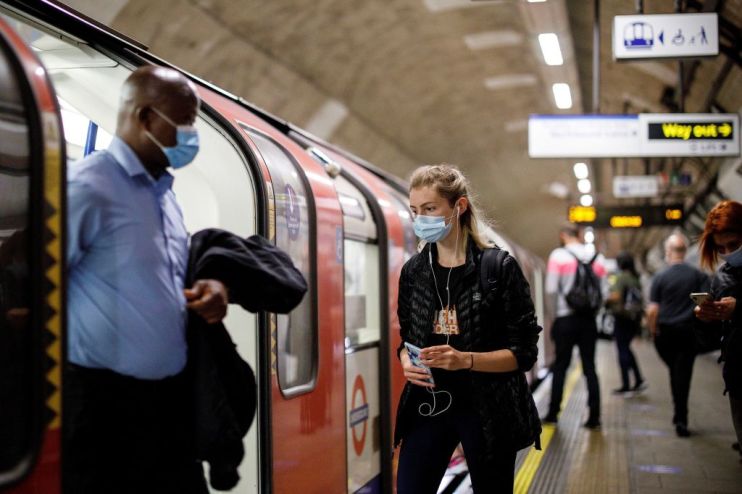Time running out for TfL to secure emergency government funding

Time is running out for Transport for London (TfL) to secure emergency central government funding, with cash from its last bailout set to dry up in nine days.
TfL is in negotiations with the Department for Transport over the funding settlement, with mayor of London Sadiq Khan asking for £5.65bn over the next 18 months as City Hall expects Tube numbers to be far below pre-Covid levels for the foreseeable future.
London’s transport body was given a £1.6bn bailout from the government in May, after revenues plummeted by more than 90 per cent during the Covid lockdown.
The bailout came with several tough conditions – such as adding government representatives to TfL’s board, suspending free travel for under-18s, reinstating the congestion charge and increasing Tube fares next year – which some have speculated were an attempt to siphon power away from City Hall.
Before the Open newsletter: Start your day with the City View podcast and key market data
The London mayor told City A.M. last month that the first bailout will run out on 17 October, a week from Saturday, and that any extra conditions to the new funding would “put conditions on our ability to run our city and that inhibits our ability to contribute to the wealth and prosperity of our country”.
However, it is believed that the two sides still have quite a bridge to gap on a potential new funding settlement.
One source inside the mayor’s office said around City Hall there was a “vague sense that [negotiations] are f****d”.
TfL commissioner Andy Byford told a London Assembly committee meeting today that “we’re expecting there will be some conditions” on the new bailout.
“But let’s keep faith in London’s transport system so it can help fuel the recovery of London, which thereby fuels the recovery of the UK,” he said.
Tube numbers are still more than 60 per cent below pre-Covid levels, with bus journeys at about half of pre-Covid levels.
Figures were rising in August and September, however new government guidance telling people to work from home where possible scuppered any hope of returning to something like normality.
Byford said TfL needs “to move away from such a dangerously high dependence on revenue through the fare box”.
John Dickie, director of strategy and policy at lobby group London First, said today that more devolution to City Hall would be the best way of creating a new funding model for TfL.
He said: “We’d like to see more devolution to London government, we’d like to see more powers and resources to take decisions locally, but one of the uncomfortable decisions that’s going to have to be taken over the next 18 months – if central government will give London government that power – is where we’re going to find the cash to fund TfL’s finances from.
“That could be a mixture of council tax, it could be different levies, it could be devolved funding streams the mayor takes over and so on.”
When asked about TfL’s bailout negotiations, a Department for Transport spokesperson said: “The government is engaging with Transport for London and the mayor on the impacts of Covid-19 on TfL’s finances. These discussions are ongoing and will ensure London has a safe, reliable network while delivering a fair deal to taxpayers.”
A City Hall spokesperson said: “Negotiations are ongoing with the Department for Transport.”